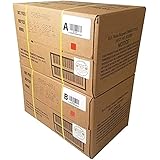Hey there! Today, I’m diving into a topic that I think is super important: planning a backup energy strategy for disasters. I’ve learned that having a solid backup energy plan not only keeps the lights on but also keeps my sanity intact during unexpected outages. In this article, I’m breaking down the process into five key areas to guide you through building your own strategy. Let’s jump in!
Assessing Your Energy Needs
Understanding Your Power Usage
First things first, you’ve got to know what your energy needs are. I remember the first time I sat down to analyze my utility bills; it was a real eye-opener! Take a good look at your current energy consumption, and jot down essential appliances and devices you need powered during an outage. This is key in deciding what kind of backup system you might need.
Next, consider the wattage requirements of each device. Some folks underestimate how much power it takes to run certain items. For instance, did you know that a refrigerator might need up to 800 watts? Making a list of your devices and their power requirements is smart and will help you avoid any surprises down the line.
Finally, I found it helpful to prioritize my devices. In the event of a power outage, I want to ensure that the critical items like my fridge and a few lights are on, while less critical stuff can wait. Trust me, knowing what you need vs. what you want to power can truly make a difference!
Exploring Backup Energy Options
Generator Types
Now let’s talk about backup options! Generators come in all shapes and sizes, and choosing the right one can be overwhelming. What’s worked for me is categorizing them into portable and standby generators. Portable generators are great for quick fixes and are easy to move around, but standby generators provide seamless power when the grid goes down.
I personally opted for a standby generator, partly because I wanted the convenience of having power without having to mess around. They automatically turn on within seconds, and I didn’t have to worry about refueling. But it’s essential to think about what’s best for your unique situation – do you want that sort of automation, or can you manage more manual options?
Plus, don’t forget to look into solar generators as well! They’re more eco-friendly and can be a great investment. I always feel a bit better knowing I’m using a clean energy source, especially during emergencies when I’m concerned about the impact on the environment.
Planning for Fuel Supply
Fuel Storage
No energy strategy is complete without considering fuel. If you’re leaning towards a traditional generator, you’re really gonna want to have a reliable fuel storage plan. When I first got my generator, I made the rookie mistake of not storing enough fuel. I ended up running around trying to find gas during a power outage, which was chaotic!
== > What if ... Get a FREE Subscription to PREPARE
To avoid that scenario, I recommend having a stockpile. Make sure to store an appropriate amount of fuel, but also don’t forget about safety. Use proper containers and follow guidelines regarding fuel storage to keep everything safe and sound in your garage or shed.
And hey, if you’re exploring solar energy options, this is less of a concern since the sun is pretty reliable. But still, think about battery storage. Having a couple of extra batteries on standby for solar systems can help you reserve energy for when you really need it!
Implementing Safety Measures
Utilizing Safe Practices with Generators
This is crucial, folks! Generators can be dangerous if not handled correctly. The first thing I learned is that generators should never be used indoors or in garages. The carbon monoxide fumes are no joke, and I learned that lesson from a friend who had a scare. Always keep your generator outside, far from open windows and vents.
Get Preparedness and Self-Reliance Tips. Subscribe Now!
Another important tip is to avoid overloading your generator. Stick to the power limits you’ve established from your initial assessment. If you try to run too many appliances at once, you could not only shut off your power but risk damaging your devices or the generator itself!
Remember, safety gear is also your best friend. Investing in carbon monoxide detectors for your home can give you peace of mind while your backup power plan is in action. It’s a small step that makes a HUGE difference!
Maintenance and Testing
Regular Maintenance Checks
Once you’ve got everything set up, don’t forget about maintenance! Just like your car, your backup energy system needs regular check-ups. I schedule a monthly inspection of my backup generator—checking oil levels, battery health, and testing it to ensure it’s ready to go at a moment’s notice.
You would be surprised how many people neglect this step and face issues when they need their generators most. Just the other day, I fired mine up, and I was relieved it started without any fuss. It gave me confidence that my backup plan really would be there for me in an emergency.
Lastly, keep a log of all maintenance activities. This way, you can track when things were last checked or serviced, making it easier when the time comes for any repairs or replacements. It’s all about being prepared, right?
FAQ
1. What should I consider when assessing my energy needs?
Look at your household’s energy consumption by reviewing your utility bills. Identify essential devices, prioritize them, and check their wattage requirements to effectively determine your backup energy needs.
2. What types of generators are available for backup energy?
You can choose between portable generators, standby generators, and solar generators. Each type has its pros and cons, so consider your specific situation and preferences when deciding.
3. How much fuel should I store for my generator?
It’s best to store sufficient fuel to last through several days without access to more, along with safe storage practices. Always follow local regulations about fuel storage too!
4. What safety measures do I need to implement for my generator?
Make sure to keep your generator outdoors, away from windows, and never overload it. Install carbon monoxide detectors in your home to ensure safety while running it.
5. How often should I maintain my backup energy setup?
Perform regular checks monthly, inspecting oil levels, battery health, and functionality of the generator. Keeping a maintenance log will help you stay on track!






